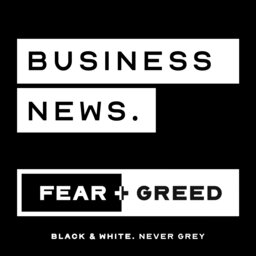Interview: $1.3 trillion fund advisor's unique view on market noise
Dimensional Fund Advisors is a global giant, with around $1.3 trillion in assets under management. Sean Aylmer sat down with co-CEO Dave Butler during a brief visit to Australia for a chat about everything from his early basketball career (he was drafted by the Boston Celtics) to how investors can tune out the noise of volatile markets.
This is general information only. You should seek professional advice before making investment decisions.
 FEAR & GREED | Business News
FEAR & GREED | Business News


